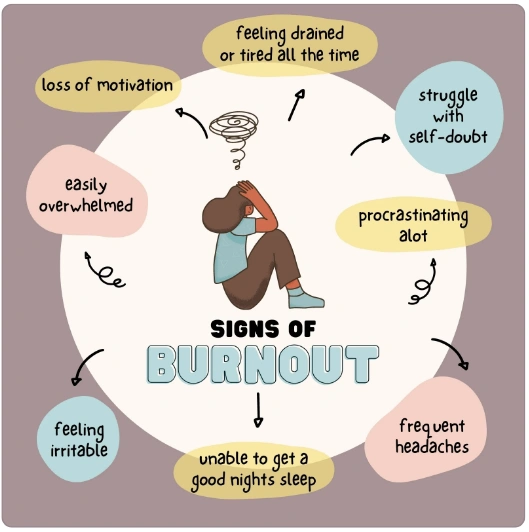The Importance of Skilled Nursing Care for Seniors with Complex Medical Needs
27-09-24
People's medical needs often become much more complex as they age. Seniors live with multiple chronic or serious illnesses such as COPD, Diabetes or heart diseases while others may be recovering from stroke or transplants. In addition they can be dealing with age related issues like dementia or mobility loss may require skilled nursing care for professional care and constant supervision to ensure their well-being. This is where skilled nursing services become imperative. Skilled nursing care entails trained professionals such as registered nurses, licensed practical nurses, and registered nursing assistants providing advanced medical care and support. Basic caregiving, which centres on daily care assistance, is different from skilled nursing, where experts offer advanced medical treatment — ranging from checking vital signs and providing medicine to wound care and delivering rehabilitative therapy. It widens the gap between hospitalization and home care so that elderly patients get proper care without unnecessary hospital readmissions. In this article, we'll look at why skilled nursing care is important for seniors with complicated medical needs and how it can enhance their standard of living.
The Advantages of Skilled Nursing Care
Seniors with medical complications require a great deal of care and attention, which skilled nursing caregivers can provide. These specialists have specialized training and experience in managing a variety of medical conditions and providing additional care, such as wound care, medication management, and vitals monitoring. Skilled nursing care provides a lifeline by offering professional medical support alongside compassionate, personalized attention
Seniors with medical complications can benefit from skilled nursing care in the following ways:
Chronic Condition Management:
Seniors with complex medical needs frequently have multiple chronic illnesses such as diabetes, heart disease, or COPD, these illnesses require consistent monitoring and timely intervention. Skilled nursing care providers can assist in the management of these situations by monitoring symptoms, giving medication, and providing encouragement for lifestyle changes such as exercise or diet changes.
Complication Prevention:
Seniors with complicated medical needs are more vulnerable to complications such as infectious diseases or pressure ulcers. Skilled nursing care providers can help prevent these difficulties by providing preventive care such as skin care, hygiene support, proper medications management. They can be assistance to hygiene, mobility, proper nutrition, creating a safe environment to prevent falls and ensuring all vaccines and preventive medicines are administered properly.
Emotional Support:
The emotional toll of aging with chronic illness is immense. Seniors face depression, anxiety and social isolation, particularly when their independence is reduced. Skilled Nurses go beyond medical care by offering companionship, emotional support, and encouragement, bringing comfort and dignity to seniors in their daily lives.
Coordinating Care:
Seniors with complicated medical needs often reply on multiple specialists including from cardiologists and neurologists to physiotherapists, dieticians, and general physicians. Skilled nursing care providers can assist in the coordination of care among these providers, making sure that all aspects of the senior's well-being are addressed and appropriate treatment and support are provided. While each plays an important role, families can sometimes feel overwhelmed trying to connect the dots between different treatments and medical advice. This is where skilled nurses step in, serving as the heart of the care team.
Peace of Mind for Families
Taking care of an elderly person with complex medical requirements may be daunting. Families have to make sacrifices and find themselves between their duties — juggling work, children, and home responsibilities — and trying to offer the highest quality care possible to their loved ones. It is something that can leave them drained, stressed, and helpless in the long run.
Skilled nursing care helps lift this heavy burden. By ensuring that seniors receive expert, round-the-clock medical attention, families no longer have to carry the constant worry of “What if something goes wrong?” They gain confidence that their loved ones are in the hands of trained professionals who understand their unique medical and emotional needs.
Above all, skilled nursing care enables families to gain back what is most important — precious time. Rather than being preoccupied with medical care, families are free to create joyous memories, have a good chat, and be together with their loved ones. For instance, a caregiver who juggles a full-time job with caring for a parent with dementia can feel exhausted and stressed out much of the time. With skilled nursing care, the parent gets expert care with respect, while the caregiver can remain at work, continue functioning as a family member, and enjoy quality time with his or her loved one without stress.
Role of Nursing Bureaus
Nursing bureaus fill the gap between professional care and family care. They offer certified and qualified nurses with experience to cater to complicated medical needs, either in a rehabilitation center, hospital, or the comfort of a patient's own home. With qualified nurses assigned only, these bureaus ensure that families have access to trustworthy and loving care without the hassle of looking for themselves. This not only ensures medical safety but also provides assurance that elderly are being attended to by professionals.
Skilled Nursing vs. Regular Elderly Care
Skilled nursing care provides assurance to families that their relatives receive professional medical services at all times. With nurses trained to administer treatments, keep track of health, and handle medication, families feel more secure and less stressed. It also reduces the necessity of frequent hospitalization, enabling seniors to stay at home while still getting expert care.
While traditional eldercare primarily addresses activities of daily living like bathing, dressing, or sitting down, skilled nursing takes it one notch higher by offering specialized medical expertise. Skilled nurses are qualified to deal with chronic conditions, recovery from surgery, wound treatment, and therapy that requires clinical skills. This line differentiates the elderly with complicated health conditions not only from receiving care but proper medical attention suited to their condition.
Choosing Skilled Nursing Services in Mumbai
Choosing an apt skilled nursing service in Mumbai needs great attention, since the quality of care can have a direct effect on the health and comfort of the elderly. The families must find nurses with good qualifications, certifications, and practical experience in dealing with complicated medical conditions. The families must also consider assessing the transparency of charges, the facility of 24/7 support, and the goodwill of the nursing bureau that is offering the service. By evaluating these variables, families can help ensure that they select a good, professional, and reliable nursing service that will address medical as well as emotional needs
Conclusion
For seniors with complicated medical needs, skilled nursing care is essential, at Healthy Wrinkles - we offer reliable and skilled nursing services, It offers advanced medical care and assistance, as well as psychological support and care coordination. Choosing the right skilled nursing care provider is critical to ensuring that seniors get the care they need to stay healthy and happy. Families can make sure that their loved ones get the best level of care and support by collaborating with skilled nursing care providers. This allows them to live their lives to the fullest.




























